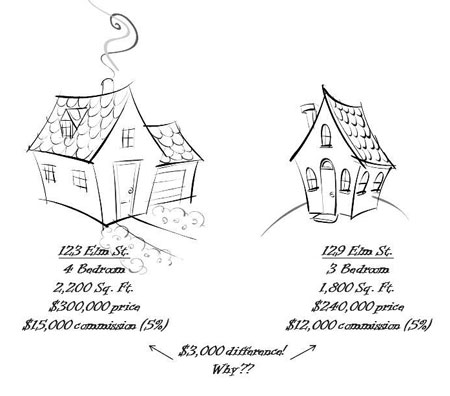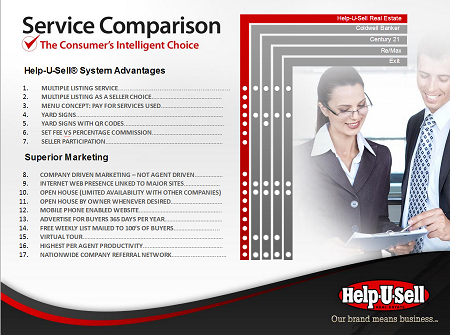Sales commissions are so common in business that I sometimes wonder if we haven’t forgotten what they are all about.
While there are several ways to compute a sales commission – paid as a percentage of gross or of profit, paid on revenue over an agreed level, paid as a set fee per unit and so on – most are calculated on a percentage basis. The historical background on this goes back to the time when the maker of a thing wanted to focus on the making and get someone else to take the burden of developing a customer base and selling the thing.
Because the salesperson did not have a vested interest in the product or the company – he or she was just ‘the help’ – sales commissions were used as a motivational tool: the more you sell, the more you make. Some organizations took this idea to the max, graduating their commission scale upwards as a salesperson’s production increased. Others, fearing that good salespeople might make more than CEOs, put a cap on commissions (and usually drove their best salespeople away in the process).
The situation in real estate is a little squirrely. Technically, you pay your real estate BROKER (not agent) a commission when your home sells. Usually it is a percent of the sales price (which, of course, makes no sense at all), and it is intended to motivate your broker to work hard securing you the best possible offer on your property. But, in reality, most sellers never meet their broker. The person they deal with is an agent who works for the broker. The broker pays the agent a ‘split’ of the commission the seller pays the broker, and uses the ‘split’ as a means of motivating the agent.
That’s the way it’s been for decades.
But this is 2013. Home selling has changed:
- It no longer takes an arm and a leg to sell a properly priced listing. The Internet has made powerful marketing affordable, even cheap.
- The mystery of getting a house sold has evaporated as consumers have gained access to information previously held from them and systems have replaced personalities in the selling process.
- As a result, the real estate superhero salesperson has lost his/her battle with Kryptonite. There really is no magic in the home selling process anymore. It’s pretty much: price it right, plug it into a marketing system that produces results and negotiate a good deal.
- The value of an agent today has more to do with negotiating that good deal, looking out for his or her client’s interests (representation), transaction processing and problem resolution as the sale progresses to closing. It’s not so much about ‘selling.’
What I question is why we are paying our brokers a commission? A commission is something you use to MOTIVATE a salesperson. The broker today is NOT a salesperson. In most ordinary real estate offices s/he is a glorified admin – supporting the efforts of his or her salespeople and keeping the office infrastructure working. The ordinary broker today is someone we should be paying a FEE to, not a commission. A FEE is something you pay a professional for handling a specialized task: you pay an attorney a FEE, you pay an accountant a FEE, why not your real estate broker?
If there is a true salesperson in this equation it is the real estate salesperson, who works for the broker . . . but s/he is not a salesperson in the way you are probably thinking. You’re probably thinking, ‘Yes! It’s that salesperson who is going to sell my house, not the broker!’ But we’ve already established that you don’t really ‘sell’ homes; homes sell when they are priced properly and plugged into an effective marketing program. The salesperson in an ordinary real estate company sells something other than homes. What they sell is the services of the broker to consumers. The broker hires salespeople not because s/he needs someone who knows how to sell a house, but because s/he needs someone to convince new sellers and buyers to do business with the company.
Seem like a muddled mess? It is. We have an antiquated business model at the heart of every ordinary real estate company. They keep trying to dress it up as ‘new!’ but, as we used to say down South, ‘you can put lipstick on that pig, but it’ll still just be a pig.’
There is another, newer way to do business that makes sense, is completely effective and costs less. It is Help-U-Sell, where you pay a broker a Set FEE to sell your home. Because selling a properly priced home is not rocket science, the broker and his or her support staff and office systems ‘sell’ your home. You’re not paying a bloated percentage based commission so that the broker can then turn around and compensate a salesperson NOT for selling the house but for bringing in new business to the company. That merry-go-round you’ve been riding all these years is in a gazebo lined with fun-house mirrors: the distortion and dizziness are numbing. Get off now, regain your footing and return to logic. Call Help-U-Sell and ask, ‘How do you guys work?’ You’ll probably be delighted with the answer.
NOTE: I keep talking about ORDINARY brokers and ORDINARY real estate companies. I realize it would be easy for almost any broker or agent with any company to imply that I couldn’t possibly be talking about THEM because they really are different. So let me clarify: probably more than 90% of the real estate offices operating in The United States today are ORDINARY. They are offices where the broker’s number one job is NOT selling real estate, but rather recruiting agents. They are offices that put the agent at the center, developing endless programs to aid salespeople, not consumers. They are offices that charge consumers a lofty percentage based commission not because there is a relationship between the commission and getting the home sold, but rather because they need all of that cash to pay the salespeople the huge ‘splits’ required to keep them. It’s all about accents. Ordinary Office = accent on the agent. Extraordinary Office = accent on the consumer (And there is no better way to put the accent on the consumer than to charge a logical low set fee for the service involved in selling a home).


 (Note: this is a generic version of the chart used only as an example in Help-U-Sell training. Don’t try to draw any conclusions from this example – it’s totally fictitious) John has used it effectively for years – in fact, it is the centerpiece of his Listing Consultation. It graphically illustrates what his office does for sellers and compares it with what his four biggest competitors do. And, of course, it shows that he does everything they do plus a lot more. It neutralizes the ‘less than Full Service’ bomb quite effectively. Trouble is: you have to get face to face with a seller before you can use it – and if Suzy Sixpence has gotten to them first . . . .well, you may not get the opportunity.
(Note: this is a generic version of the chart used only as an example in Help-U-Sell training. Don’t try to draw any conclusions from this example – it’s totally fictitious) John has used it effectively for years – in fact, it is the centerpiece of his Listing Consultation. It graphically illustrates what his office does for sellers and compares it with what his four biggest competitors do. And, of course, it shows that he does everything they do plus a lot more. It neutralizes the ‘less than Full Service’ bomb quite effectively. Trouble is: you have to get face to face with a seller before you can use it – and if Suzy Sixpence has gotten to them first . . . .well, you may not get the opportunity.